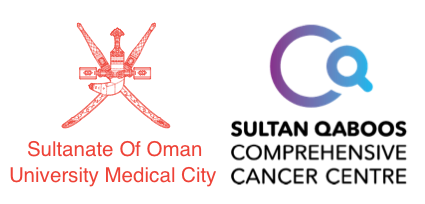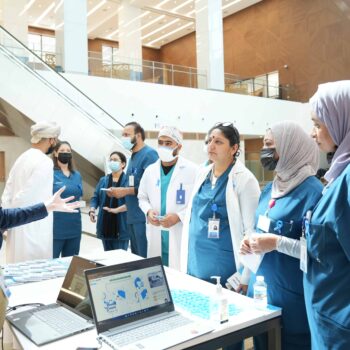Beware ... Google is not the source!
The patient s’ attempt to educate themselves about cancer is a step in the right direction towards raising their level of awareness in dealing with the disease and its effects, especially from a psychological and social point of view. However, reliance on inaccurate sources remains a step that may lead to undesirable results. Here we address the sources of information and their effects. On the journey of treating cancer patients.
Look for information
Ashwaq Al Balushi, a social worker, says: “People were made to look for answers to their questions in life. Looking for answers is initial in the journey of cancer patients to overcome the fears about the disease, the symptoms they feel, and the treatments they will go through. All of this is to reassure the patients.
Regarding the sources which the patient relies on, Bashayer Al-Muqbali, a social worker, says: “Based on what I hear from patients when I meet them, obtaining information comes either through the treating physician or Google as an external source. Google is one of the most references and sources that patients usually rely on whether after they have the disease or from the onset of symptoms. This may be because it is the easiest and most used search page. Moreover, patients may ask people who have gone through the same experience before or are still in the treatment stage, as the patient in the early stages of diagnosis may face many questions and fears. They need any hope so they will go to the easiest way to get those answers.
No… not Google!
And about the impact of depending on search engines as a source of information, Al Balushi says: “The Google browser is one of the sources of information, but at the same time it may seem like a source that exaggerates topics and cannot be relied on. Since medicine is a broad science and a specialized field that cannot be taken from a search engine but from specialized people.
Intisar Al-Yafei, a social worker, explains: “Every patient has a different health condition, and a different genetic and environmental history. Therefore, the information provided by the search engine is for the experiences of some cases and the information may not be related to the patient’s real condition. The search engine also shows the worst possibilities and effects. Moreover, it describes some treatments that reflect negatively on the patient, and this creates a lot of tension, fear and negative thoughts that reflects on the patient’s social and psychological performance. Besides, this information may low the patient confidence in the treating team, and may cause obstacles in completing and adhering to the treatment plan, as we observe from the cases.
As for Al-Muqbali, she says: “I see that relying on digital sources has two aspects, one is positive as looking at the motivating experiences of others; and the other is negative as a lot of patients has wrong thoughts when it comes to the side effects of the disease based on what they saw on the Internet”.
The Right Source
Regarding the sources that the patient should depend on, Al-Yafei says: “The specialists and the treating team are the first and main source for obtaining information and for a good understanding of the medical condition, as they are scientifically and practically qualified in their field. Furthermore, it is possible to benefit from books and discussing previous information or experiences with the treating team to identify what is relevant and what is not relevant to the patient’s condition.”
Al-Muqbali added: “I always advise patients when I meet them to depend on a reliable source to answer their questions about their disease. The attending physician will give the patient the details of his/her disease, starting with the type and stage of the disease and ending with the available treatment options.”
For the Patient
Al Balushi says in an advice for patients: “If you have any questions or concerns about the disease and the symptoms you feel, do not hesitate to ask your treating doctor, he/she is a specialist and has the right information. Nevertheless, Google browser will provide you with search results from several sites and will provide you with inaccurate information that will remain the focus of attention and you will be delusional that you have the symptoms and this will cause you great anxiety and stress.”
Al-Yafei says: “You should record the inquiries you need to know if you are at home, and ask the treating team at your next appointment. Try to understand the implications of each procedure and the expected symptoms from the treating team to avoid feeling afraid. You should avoid looking for information on undocumented websites. Finally, use the audio and reading references which are recommended by the treating team that will direct you to reliable and scientific sources.





